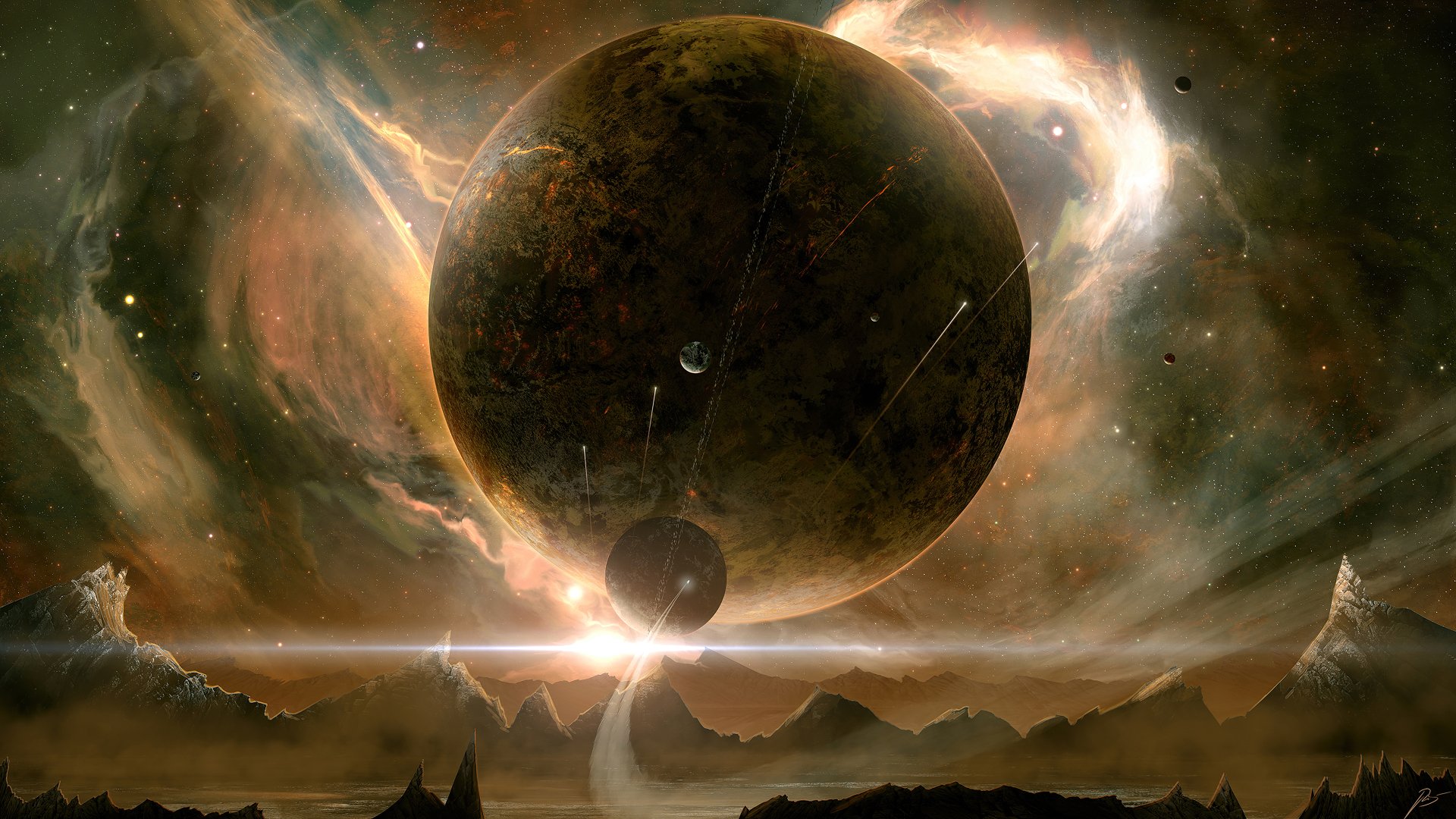The concept of the “horizon” has deep philosophical, scientific, and even metaphysical implications. In both literal and figurative senses, horizons represent boundaries—edges where known meets unknown. In science, this idea has catalyzed numerous breakthroughs, driven technological innovation, and provided the very framework within which discoveries are made. Whether it’s the horizon of a distant star, the event horizon of a black hole, or the metaphorical horizon of human understanding, the idea of “horizon” plays a pivotal role in shaping how we explore, understand, and ultimately transcend our limitations.
In this article, we will explore how the concept of horizon has impacted scientific discoveries, looking at both tangible phenomena and philosophical perspectives that have influenced scientific methodology and exploration. We will investigate its impact across different fields of study, from cosmology and physics to biology and technology. Along the way, we will see how the horizon—whether a literal distance, an observable boundary, or a mental construct—has driven humanity’s quest for knowledge and shaped the course of modern science.
1. The Horizon in Astronomy and Cosmology: Expanding Our View of the Universe
One of the most direct ways in which the concept of horizon influences science is through its application in astronomy. The term “horizon” in this context is not just a poetic notion, but a critical observational limit. For example, the “observable universe” is essentially defined by the farthest distance from which light has had time to travel since the beginning of the universe, a boundary often referred to as the “cosmic horizon.”
The Cosmic Horizon: A Limit to Observation
The concept of the cosmic horizon is based on the finite speed of light. Since the universe has a finite age—approximately 13.8 billion years—we can only observe objects whose light has had enough time to reach Earth. This limit is not merely a technical constraint but a fundamental characteristic of how we perceive the cosmos. As we improve telescopes and observation techniques, this “horizon” expands, allowing us to peer further into the past and gain new insights into the structure and origin of the universe.
One of the most groundbreaking moments in this area of study came with the development of the Hubble Space Telescope, which allowed scientists to “look back” further into the universe than ever before. It provided a view of galaxies billions of light years away, offering glimpses of the early universe just after the Big Bang. In this sense, the concept of the horizon doesn’t merely define a limit; it also drives new technological and observational techniques aimed at “reaching” beyond it.
The Event Horizon: The Mysterious Edge of Black Holes
In the realm of black holes, the event horizon presents another critical scientific boundary. This is the point beyond which nothing, not even light, can escape the gravitational pull of the black hole. The event horizon is not a physical surface, but rather an invisible boundary in space-time, marking the “point of no return.”

The discovery of black holes and their event horizons has revolutionized our understanding of physics, particularly in the fields of general relativity and quantum mechanics. The study of these mysterious objects provides a testing ground for theories about the nature of gravity, space-time, and even the fundamental structure of the universe. For instance, the first-ever image of a black hole’s event horizon, captured by the Event Horizon Telescope in 2019, was a historic moment in science. It demonstrated that theoretical predictions about the behavior of light around black holes were accurate, and confirmed the presence of these exotic objects in our universe.
The event horizon concept also raises philosophical questions about the nature of knowledge. Once something crosses the event horizon, it is essentially lost to us—irretrievable, unreachable. This reinforces the notion that there are limits to our knowledge, but also sparks curiosity about what lies beyond those limits. How does this “horizon” influence our approach to the unknown, and what new scientific paradigms might arise as we attempt to peer beyond it?
2. Horizons in Physics: From the Classical to the Quantum Realm
In physics, the notion of a horizon is not confined to celestial objects. It extends to some of the deepest questions about the fabric of the universe itself. The pursuit of understanding the fundamental forces of nature—gravity, electromagnetism, the strong nuclear force, and the weak nuclear force—has brought scientists to the edge of new “horizons” in knowledge.
The Horizon of Classical Physics
In the early days of modern physics, scientists like Isaac Newton viewed the universe through the lens of classical mechanics, where physical laws seemed to apply universally. However, as scientific tools advanced, new “horizons” were encountered. The discovery of the electron, the development of quantum theory, and Einstein’s theory of relativity introduced the concept that physical laws may not be as universal and absolute as once thought.
The development of quantum mechanics brought forth an entirely new horizon of understanding, where particles exist in states of probability rather than certainty. The uncertainty principle, a fundamental tenet of quantum mechanics proposed by Werner Heisenberg, illustrates how certain properties of particles cannot be known simultaneously with complete precision. In this sense, the “horizon” of our knowledge of particle behavior is constantly shifting, as new discoveries challenge established frameworks.

The Horizon of the Quantum Realm
Perhaps one of the most exciting horizons in physics today is the study of quantum gravity. This area of research seeks to unify general relativity, which describes the behavior of large-scale objects like planets and black holes, with quantum mechanics, which governs the behavior of particles on the smallest scales. The “horizon” here is the quest for a theory of everything—a single unified framework that can explain all forces of nature.
The search for a quantum theory of gravity has led to speculative ideas such as string theory and the multiverse. These ideas suggest that our understanding of space, time, and even reality may be far more complex than we currently realize. The horizon in this case is not just an observational limit; it is a conceptual one—one that may challenge the very boundaries of how we think about the universe and our place within it.
3. The Biological Horizon: The Limits of Life and Evolution
While the concept of the horizon is often associated with the cosmos or the abstract world of theoretical physics, it also plays a crucial role in the biological sciences. In biology, the horizon is often a metaphor for the limits of life itself: the threshold beyond which life cannot exist, or the boundary between different states of biological processes.
The Horizon of Life on Earth: Evolutionary Limits
One of the most profound “horizons” in biology is the concept of evolutionary limits. Life on Earth is governed by the principles of natural selection, which act as a kind of boundary that defines the possibilities of adaptation and survival for organisms. These limits are shaped by environmental factors, genetic variation, and the pressures of competition and predation.
However, as life evolves, it encounters new challenges and niches. This constant process of adaptation results in the emergence of new species and the extinction of others. The idea of a “horizon” in this context refers to the potential for life to adapt and evolve in response to changing conditions. However, there are always biological and ecological boundaries—such as the ability to metabolize certain resources or survive in extreme environments—that shape the direction of evolutionary processes.
The Horizon of Consciousness: The Limits of Human Understanding
Beyond the biological aspects, the concept of horizon also applies to the human mind and our ability to comprehend the universe. In neuroscience and psychology, the “horizon” might be the limit of human consciousness. As we attempt to understand how the brain works, we continually push against the limits of what is known about the mind and cognition. What are the boundaries of human perception, and what are the thresholds at which consciousness itself becomes something more than just a biological phenomenon?
The limits of human consciousness are also explored in the field of artificial intelligence (AI). Researchers are working to build machines that might one day approach or even exceed human cognition. As we develop AI, we are constantly forced to confront the boundaries between human and machine intelligence. What defines the horizon of human thought? What happens when this boundary is crossed?
4. Technological Horizons: Pushing Beyond the Known
In the realm of technology, the horizon represents the edge of human ingenuity. Throughout history, technological advancements have often been motivated by the desire to push beyond existing boundaries, whether they are geographical, physical, or intellectual.
The Horizon of Communication: The Internet and Beyond
One of the most significant technological horizons of the modern era has been the development of the internet. The internet has expanded our ability to communicate across vast distances, making the world feel smaller and more interconnected. The “horizon” here represents the rapidly expanding boundaries of information exchange, where new technologies such as artificial intelligence, blockchain, and quantum computing promise to redefine how we interact with information, security, and even each other.
The Horizon of Space Exploration: Reaching Beyond Earth
In space exploration, the horizon represents the boundaries of human reach. The exploration of Mars, the development of private space travel, and the search for extraterrestrial life are all part of humanity’s attempt to extend its presence beyond the confines of Earth. As technology advances, the horizon of space travel continues to expand, from the moon to the outer planets and beyond. New missions, such as NASA’s Artemis program and private ventures like SpaceX’s Starship, are working to push the limits of what is possible in human space exploration.
Conclusion: Horizons as Catalysts for Scientific Discovery
The concept of the horizon is integral to our understanding of the universe, the limitations of our knowledge, and the drive for scientific discovery. From the distant stars to the quantum particles in the laboratory, horizons act as both challenges and motivators, pushing the boundaries of what is known and opening up new frontiers of possibility.
The horizon is not a static boundary; it is a dynamic force that drives inquiry, exploration, and innovation. Whether we are peering into the farthest reaches of space, delving into the mysteries of consciousness, or grappling with the unknowns of quantum mechanics, the concept of the horizon challenges us to continually ask: What lies beyond? What is the next frontier?
As we continue to push the boundaries of our understanding, the horizon will remain an essential part of the scientific process, inspiring curiosity and discovery in ways that are as profound as they are limitless.























